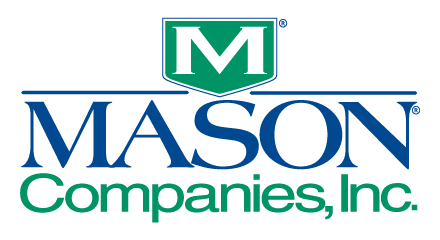International Collaboration Yields Economic Benefit
Chippewa Economic Development Corp. works with British firm to bring investment, jobs to Chippewa Falls
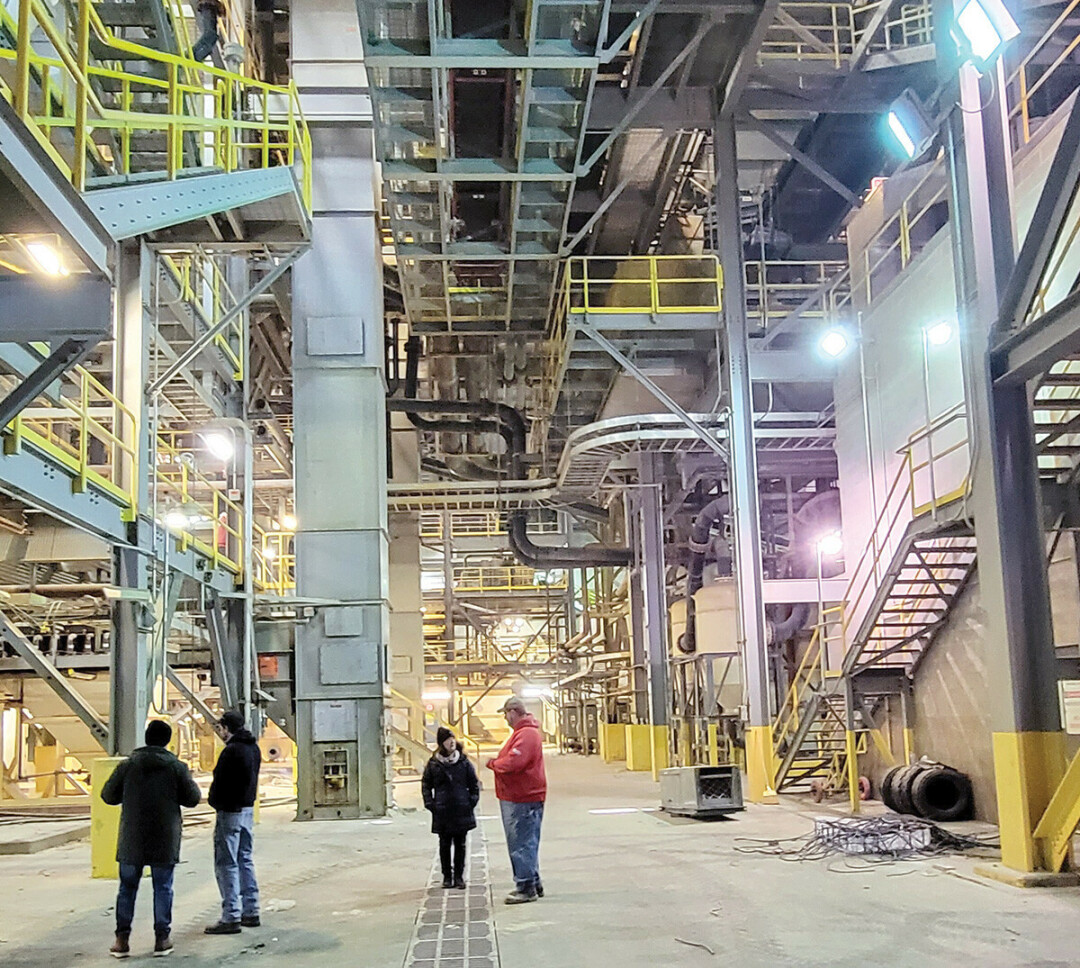
Nearly 4,000 miles and an ocean separate Oxford, England, and Chippewa Falls, Wisconsin, but a pair of entrepreneurs are bridging that gap to bring jobs and investment to the Chippewa Valley.
Their ongoing effort has been aided by the Chippewa Economic Development Corp., an agency that works to foster the investment of both capital and human talent in Chippewa County. The Chippewa EDC does this through both cultivating locally grown businesses and attracting investment and ideas from elsewhere – whether it’s from across the state, the nation, or from offshore.
“We want to become the creative kind of forward-thinking entrepreneurial startup that’s going to attract and retain the talent in the area,” says Chris Gregory, one of two founders of Collaborative Engineering Services Inc., which plans to locate in Chippewa Falls. “We believe that the Chippewa Valley as a whole is a perfect fit for us.”
“We want to become the creative kind of forward-thinking entrepreneurial startup that’s going to attract and retain the talent in the area.”
Founded several years ago in the United Kingdom, Collaborative Engineering Services plans to make a $15 million capital investment in the Chippewa Valley and to create 40 jobs, the company announced this month.
And that’s just the beginning, explains Charlie Walker, president and CEO of the Chippewa Economic Development Corp. The investment will also bring new life to the former EOG Resources sand processing plant in Chippewa Falls, as well as likely spur the growth of other businesses in the area.
PUTTING DOWN ROOTS
The Chippewa EDC has served as a facilitator and a matchmaker of sorts for the British entrepreneurs, Chris Gregory and Lesley Blaine, and their company.
Collaborative Engineering Services was founded in Oxford, England, which is home to the renown university and is also a hub for vehicle production and high-tech businesses. The company provides engineering, project management, and consulting services for businesses in the energy and green technology sectors, with a particular interest in electric batteries.
While search for a location to branch out into the United States, Gregory and Blaine discovered the former EOG Resources plant in Chippewa Falls. “We didn’t actually know where Wisconsin was,” Blaine says with a laugh. “We had to Google it first.”
Now, less than a year later, the Gregory and Blaine are well on their way to relocating to the Chippewa Valley, where they hope to put down roots. That process is being aided by those who are already rooted here, particularly the Chippewa EDC.
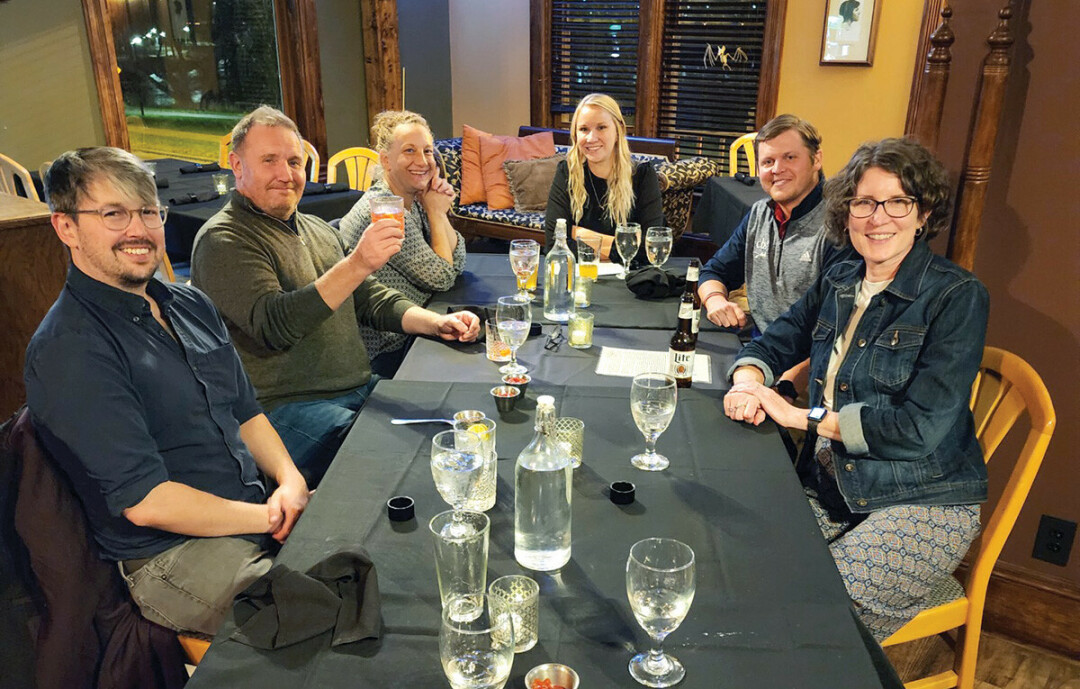
The founders were introduced to Walker and the agency in September by the owner of the plant, and since then they’ve met with Walker via video call almost weekly. Over that time, he’s introduce them to a wide range of people from the community who have helped them on their entrepreneurial journey, from City Council members to bankers to school officials and potential manufacturing partners.
“Thanks to Charlie and his team for making us so welcome, and making us feel as though we could set up home and our business in the Valley,” Blaine says.
“To say that we've been overwhelmed is probably an understatement,” adds Gregory.”We’re completely out-of-towners, obviously, and we’ve got funny accents, and people have been absolutely brilliant.”
Gregory and Blaine has been impressed by the beauty of Wisconsin’s open spaces, nature, and trails, as well as the warmth of the people they’ve met. “It’s a completely different way of life from the U.K.,” Blaine says. “People stop and talk to you, they’re interested in helping you out.”
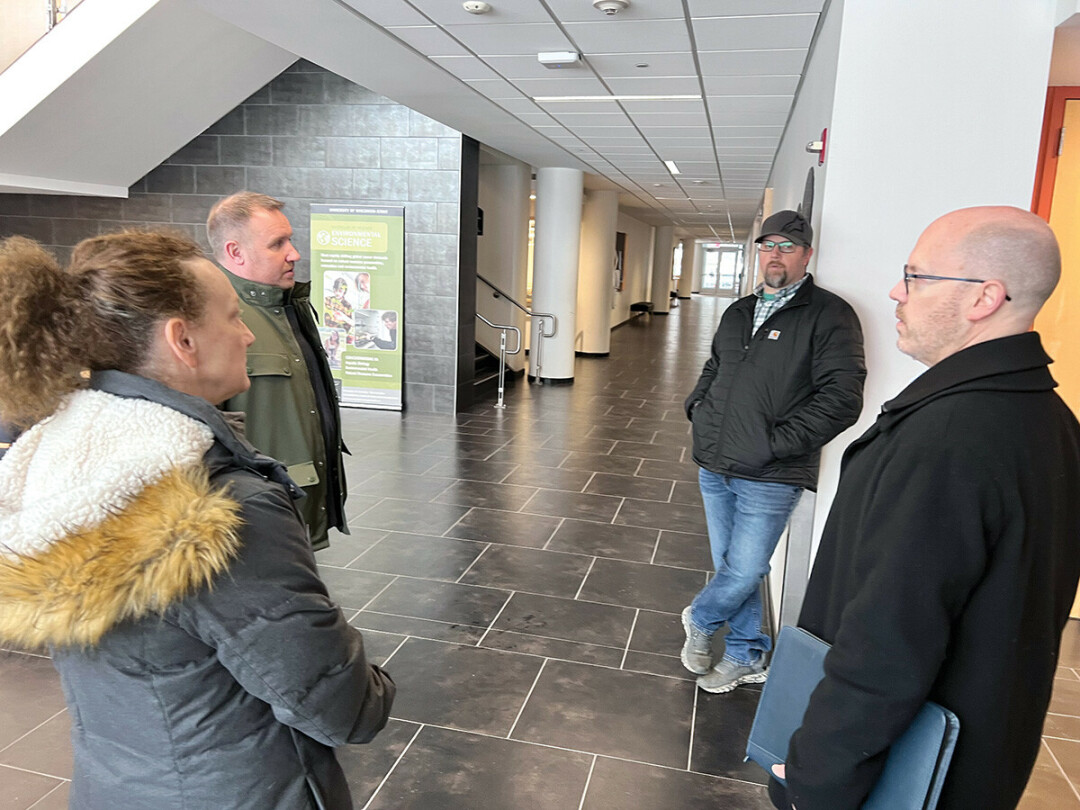
Even the weather has been impressive: In a short span during a visit to Wisconsin this spring, Gregory experience both a blizzard and 80-degree sunshine.
Weather extremes aside, the process has not been without its challenges. Gregory, Blaine, and their families are learning to navigate the visa system and discovering the difficulty of leasing a home or even sending a shipping container without a Social Security number.
Part of the Chippewa EDC’s role, Walker says, is helping international partners navigate such complications and learning about them so processes for future investors can be simplified.
“We need as a community and a state to hear that, and to try to put policies in place to make it easier for the great talent to come to the Chippewa Valley,” he says.
PLUGGING INTO TECHNOLOGY
While they’ve been attracted to the Chippewa Valley in part because of its laid-back lifestyle and natural beauty, the founders of Collaborative Engineering Services know that the regional offers more than forested trails and fish-filled lakes: There’s also a great educational system and a high-tech history.
Gregory notes that the Chippewa Falls was the hometown of Seymour Cray Jr., founder of Cray Research and the man often called the father of the supercomputer. Like Cray, Gregory and Blaine see the Chippewa Falls area as a great place to build a business and retain talented employees.
“If we can produce a fraction of the brilliance of the Cray supercomputer, then we would have done all right as a business,” Gregory says.
One of the company’s main interests is the sustainability of electric vehicle batteries. These batteries often have a high failure rate, Gregory says, but that’s often a failure of diagnosis: While failed batteries are typically scrapped, they frequently have modules that still work and could be repurposed. Reusing these batteries can keep the valuable raw materials used to create them in the supply chain.

“Our aim is that we produce a high-quality, high-safety factor battery that’s solely made in the U.S.,” Blaine says, “and that we can disrupt the import of batteries from the Far East so that we can establish Wisconsin as being a leading supplier of high-quality, safe batteries within the U.S.”
In addition, recycling the remaining used battery components can create a “circular economy,” she adds.
“It’s not just about our business,” she says. “It’s about attracting other businesses to the area that can complement what we’re trying to do.”
Collaborative Engineering Services is already looking at partnerships with local businesses and educational institutions, and its founders have been impressed by the quality of the colleges and universities in the region.

Part of the region’s higher education system is the UW-Stout Manufacturing Outreach Center, which provides consulting and training to manufacturing businesses in the region. The Chippewa EDC helped connect the entrepreneurs to the Manufacturing Outreach Center. Nick Ford, a senior management engineer at the center, says the MOC usually works with existing manufacturers on subjects like developing efficient processes and product delivery. “This is kind of a unique opportunity for us to be on the front end of that and help with the development of those processes prior to them being put in place,” Ford says of his work with Collaborative Engineering Services.
Blaine lauds the help her business has received from the MOC to develop high-quality processes from the outset.
“They provide a kind of service that we would have to get from two or three different individual companies,” she says.
For his part, Walker is excited that Collaborative Engineering Services is locating in the Chippewa Valley, and hopes that such foreign direct investment continues to ramp up in the region.
“Chris and Lesley are such a great fit because they are in the arena of the next generation of production of electric batteries for vehicles, but they’re taking an entrepreneurial approach,” Walker says. “The value we provide is getting them in touch with the people that they need to be in touch with.”
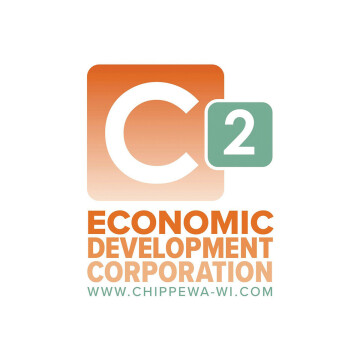
This article was produced in partnership with the Chippewa Economic Development Corp. To learn more about the CEDC and its programs, visit the EDC’s website at chippewa-wi.com. You can also find the Chippewa County EDC on Facebook, Twitter, YouTube, and LinkedIn, or reach them by phone at (715) 723-7150, via email at staff@chippewa-wi.com, or in person at 770 Technology Way in Chippewa Falls.

